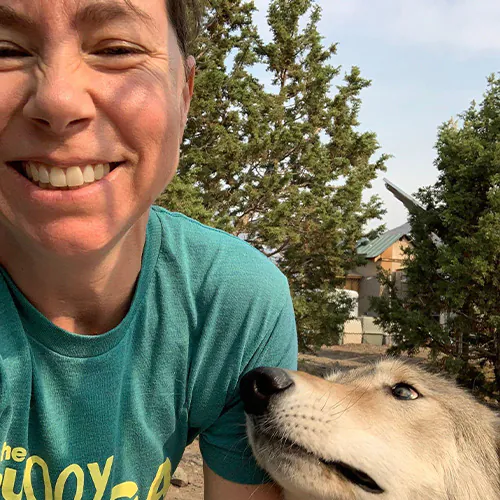Specialized Veterinary Services for All Exotic Pet Species
Routine Wellness Exams for Ferrets, Guinea Pigs & Rabbits
Routine wellness exams should be a vital part of any pet’s care, as these exams help catch potential issues before they can become more serious conditions down the road. Prey animals like rabbits, hamsters, and guinea pigs are more likely to hide illness or injury until it becomes a serious problem, making routine preventative care visits essential in keeping your exotic pet healthy through every stage of life.
Advanced Diagnostic Care for Reptiles & Small Exotic Mammals
Your exotic pet’s comprehensive care plan should also include routine diagnostic testing, such as:
- Blood work
- Fecal analysis
- Dental check-ups
- Disease screenings
- Behavior and anxiety evaluations
Depending on the species of your exotic pet, routine vaccinations to prevent diseases like rabies or distemper may also be required.
It’s important to note that Nevada Veterinary Medical Law mandates that pets must undergo an examination by a veterinarian at the treating hospital at least once every 12 months before receiving diagnostics or treatments.
Understanding Your Exotic Pet’s Unique Healthcare Needs
Caring for an exotic pet comes with unique challenges and responsibilities that may differ from traditional pets like dogs and cats. Research shows that exotic pet ownership has increased over the last several years, with nearly 15% of homes having an exotic or non-traditional pet. These animals need a specific environment, proper nutrition, and enrichment that focuses on their unique lifestyle so they can thrive in your home.
Creating the Ideal Habitat for Your Exotic Animal
Exotic pets often require specialized habitats designed to mimic their natural environment. This may include a temperature-controlled enclosure, humidity controls, specific lighting, and elements from their home environment. Researching and discussing the best habitat for your exotic pet with your veterinarian can ensure your pet has the chance to flourish in its home.
Species-Specific Nutrition for Optimal Exotic Pet Health
Along with an appropriate habitat, your exotic pet needs a diet specific to its species. For example, a reptile needs a much different diet than a guinea pig or a pet bird. Consulting with your vet to understand your pet’s specific nutritional needs, including vitamins and supplements, will ensure they receive a well-balanced diet that promotes optimal health and wellness.
Essential Socialization & Enrichment for Exotic Animals
Exotic pets require specialized handling and enrichment that mimics the conditions they would experience in the wild. Your exotic pet often needs enrichment like climbing, digging, and mental stimulation activities. Providing toys, puzzles, and other enrichment opportunities can help promote their emotional and mental health. Some exotic pets also thrive with companionship and may need a friend to socialize.
Recognizing When Your Exotic Pet Needs Veterinary Attention
Recognizing the signs and symptoms that your exotic pet may need to see a veterinarian can sometimes be difficult to spot. Many exotic species have adapted to hide signs of illness as predators in the wild can see them as a weakness. Understanding your pet’s temperament and any unusual behavior changes can help you catch issues before they become costly problems when left untreated. Here are some signs to look out for that your exotic pet may need veterinary attention:
- Ongoing weight loss
- Changes in eating or drinking
- Respiratory distress
- Vomiting or changes in stool
- Lethargy
- Weakness
- Changes in skin texture
- Loss of feathers
- Sudden behavioral changes
- Swelling or lumps
- Discharge from the nose or eyes
- Difficulty swallowing
For example, watery stools, difficulty breathing, and a swollen abdomen in an exotic bird could be signs of a common health condition called psittacosis, or parrot fever. A guinea pig or rabbit not eating or producing stool may have a gastrointestinal issue that can be life-threatening if left untreated.
Catching an illness early is vital in diagnosing and treating your exotic pet. If you notice any abnormal signs or symptoms or have any questions about treating your exotic pet, please contact us as soon as possible to schedule an appointment and get your pet back to feeling its best.
Trust Mountain View Animal Hospital & Holistic Pet Care To Treat Your Exotic Pet
At Mountain View Animal Hospital & Holistic Pet Care, we understand that exotic pets have unique needs and require specialized care to thrive. Our comprehensive services are designed to meet these needs, from routine wellness exams and diagnostic testing to tailored advice on habitat creation, nutrition, and enrichment. Whether your exotic pet is a bird, reptile, or small mammal, our team is equipped to provide the attentive, individualized care they deserve to support their health and happiness.
As one of the few AAHA-accredited animal hospitals, we are proud to uphold the highest standards in veterinary care. Our blend of traditional and holistic approaches allows us to address your pet’s health comprehensively and compassionately. Whether your exotic pet needs preventive care, treatment for an illness, or just a check-up, we’re here to guide you through every step of their health journey. Call us at (775) 853-6900 or visit our contact form to schedule an appointment and give your exotic pet the care they need to thrive.
Exotic Pet Care FAQ









